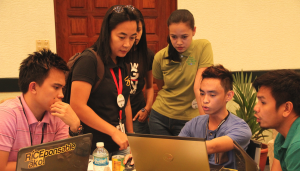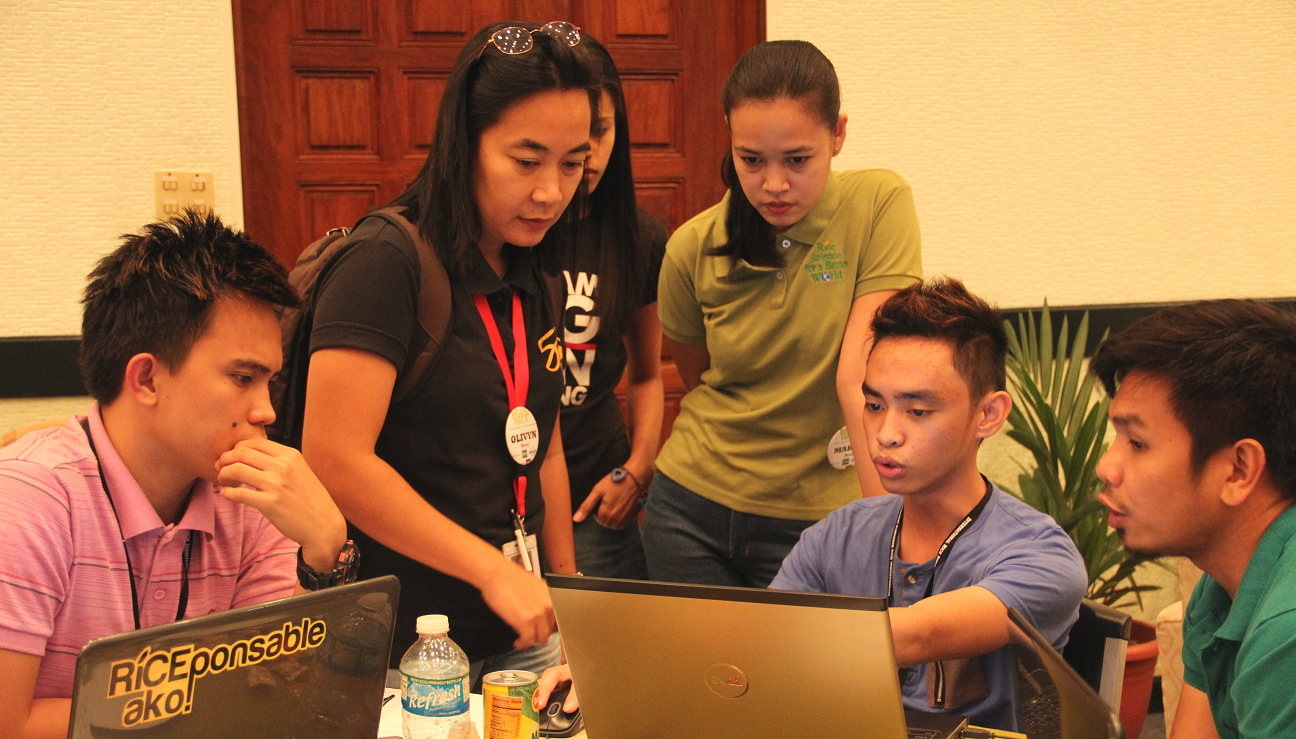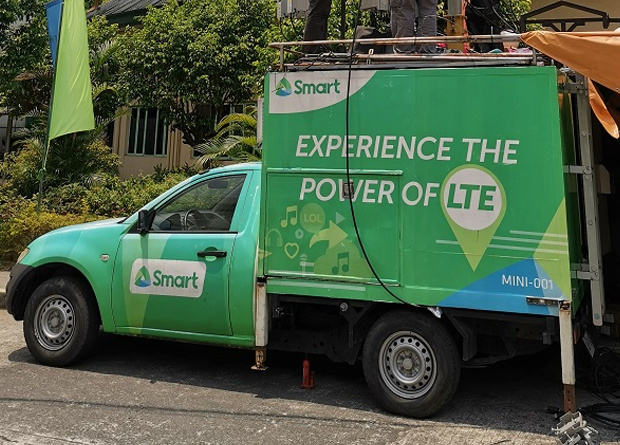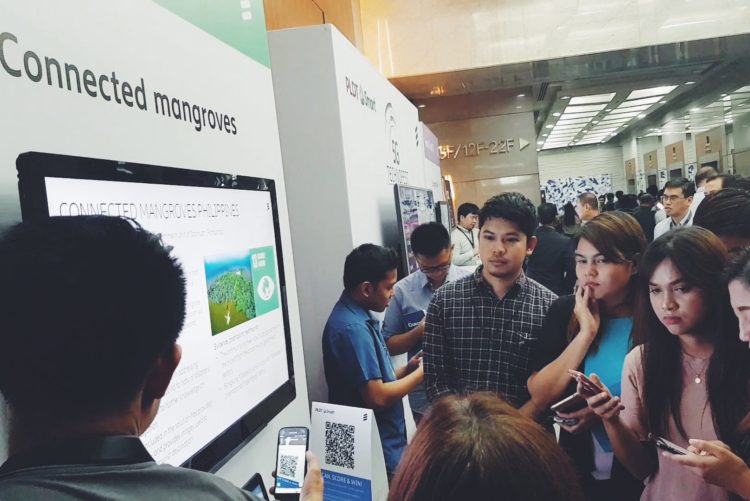
Participants of Bigas2 Hack’s Long-Term Challenge were given at least a month to work on their projects with IRRI scientists.
A group of computer science professors from De La Salle University has developed a camera system that will allow rice scientists to easily monitor plant development in screen houses. Team Ani Mo’s project called Butil (Filipino word for “grain”) was named one of the winning hacks in the recent Bigas2 Hack, a software and hardware development contest organized by the International Rice Research Institute (IRRI) and Smart Communications, Inc. (Smart).
Butil was declared the Best Research Optimization App under the competition’s Long-Term Challenge. Doing pre-work for the month before the event, its creators came up with stationary cameras linked to a system that can measure a plant’s greenness, density, and leaf length, thereby eliminating the need for IRRI staff to measure these plant characteristics manually.
Getting runner-up honors was Team Hackalyst from the Philippine Rice Research Institute (PhilRice) who developed a web-based interface for Oryza 2000, the software IRRI uses to model potential rice yield and growth.
Participants presented their projects toward the end of the two-day Bigas2 Hack which was held at the IRRI headquarters in Los Baños, Laguna.
Those who joined the Short-Term Challenge were given less than 24 hours to finish their hacks at the event site. Under this category, Team xTra Rice’s Rice Calculator won Best Farmer App. Rice Calculator is an online tool that contains a variety seed selector and many calculators that will help rice farmers determine profitability, moisture loss, and milling quality, among others.
The Best Consumer App award went to Team LB Pips’ Visitors Kiosk project, which allows people to virtually visit IRRI’s Riceworld Museum.
Named Best Innovation App under the Bring-Your-Own-Idea Challenge was Weather-on-the-Go by Team GoRated, a web application that sends real-time weather changes and forecasts via SMS. Placing second was HarBest Deal by Team HarBest, a platform that seeks to establish communication and facilitate transactions among farmers, rice traders, and IRRI.
The winners received Lenovo smartphones or Archos tablets, annual membership subscriptions to freelancing marketplace Freelancer.com, USSE data leakage prevention software subscriptions, Jollibee gift certificates, SmartDevNet laptop bags, and packs of brown rice. They were also invited to further work with IRRI for the implementation of their projects.
A total of 12 teams joined Bigas2 Hack, the sequel to the successful BigAs Hackathon staged by IRRI and Smart last year. Judges for the event included Dr. William Padolina, former IRRI deputy director general for operations; Heraldina Salonga, managing director of Oracle database consultancy SQL*Wizard, Inc.; Ann Jacobe, chief executive officer of mobile content provider Youphoric Labs, Inc.; Jay Fajardo, CEO of development firm ProudCloud; and Alvin Gendrano, director of the developer and platform group of Microsoft Philippines.
“The work that these teams did over a month or overnight is a great boost to the work of IRRI and the Philippine government. Their projects are useful not only in the Philippines, but internationally as well. In fact, IRRI has been invited to stage a similar hackathon in India,” said Bruce Tolentino, IRRI deputy director general for communications and partnerships.
“We are grateful to the participants and to our partners for helping make this happen,” he added.
IRRI and Smart’s partners for the event included the U.S. Embassy-Manila, Amazon Web Services, Microsoft Azure, Google Developers Group, Freelancer.com, Jollibee Group Foundation, Mozilla Philippines, Soft Micro Enterprises, USSE, and Advance Microsystems.
Francis Lai of Team Ani Mo said he found the government and corporate support for Bigas2 Hack overwhelming. “As a member of the academe, I can say that it is always a challenge to get external support for a project. We are happy that there are events like Bigas2 Hack because we have been pushing for the integration of academic teachings with practical applications,” he said.
Jim Ayson, Smart senior manager for partner management and developer relations, said holding hackathons is one of the ways by which Smart is helping develop Filipino human capital and contributing to nation-building.
“The team that won one of our recent hackathons is now in Silicon Valley to pitch to potential investors for their startup. We look forward to helping more local developers get the recognition and support they deserve,” he said.
Smart, through the Smart Developer Network (SmartDevNet), has been organizing tech events that have trained the spotlight on local developers, and have given birth to applications with a positive impact on the lives of Filipinos.











































































































